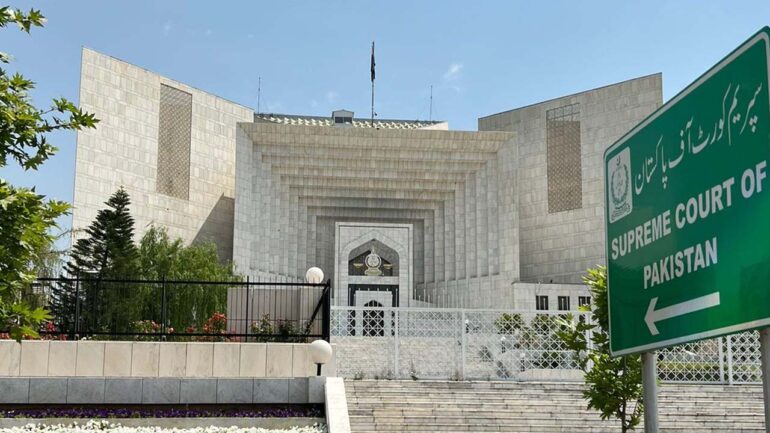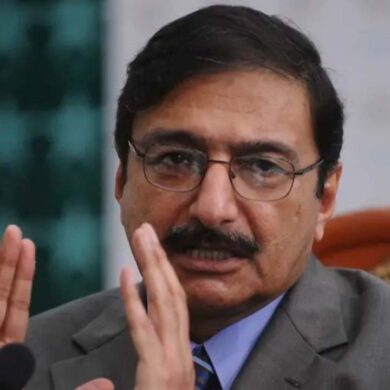The Supreme Court (SC) concluded on Monday the longstanding debate over lifetime disqualification of lawmakers with a decisive 6-1 verdict.
The decision, which had been reserved the previous week, delivered by a seven-member larger bench led by Chief Justice of Pakistan (CJP) Qazi Faez Isa, alongside Justices Syed Mansoor Ali Shah, Yahya Afridi, Aminuddin Khan, Jamal Khan Mandokhail, Muhammad Ali Mazhar, and Musarrat Hilali.
Justice Yahya Afridi, however, dissented from the majority verdict.
The petitions presented to the apex court sought clarification on whether the disqualification period was to be considered a lifetime ban or a five-year restriction.
During the hearings, CJP Isa emphasized that the concept of lifetime disqualification under Article 62(1)(F) was subjective, dependent on individual perception rather than a constitutional mandate.
He expressed a commitment to swiftly resolve the case to prevent confusion regarding the duration of disqualification for lawmakers, particularly with the general elections slated for February 8.
The proceedings, noteworthy for their transparency, were broadcast live on the Supreme Court’s YouTube channel.
CJP Isa had previously highlighted the importance of a quick resolution to benefit returning officers (ROs) and avoid uncertainty in the lead-up to the elections.
The bench, established under the Supreme Court (Practice and Procedure) Act 2023, featured a three-judge committee comprising CJP Isa, Justice Sardar Tariq Masood, and Justice Ijazul Ahsan.
Following the latest verdict, Pakistan Muslim League-Nawaz (PML-N) leader Nawaz Sharif has been granted clearance to participate in the upcoming elections.
Nawaz had faced a lifetime disqualification in 2017 under Article 62(1)(F), which specifies qualifications for members of Parliament.
Article 62(1)(F) stipulates that a person cannot be eligible for election to Majlis-e-Shoora (Parliament) unless deemed sagacious, righteous, non-profligate, honest, and ameen, with no contrary declaration by a court of law.
In a previous administration led by Shehbaz Sharif, amendments were introduced to the Elections Act 2017, limiting the disqualification of lawmakers to a five-year period.
The recent SC verdict now settles the debate and paves the way for a clearer electoral landscape in Pakistan, perhaps for Nawaz Sharif.



